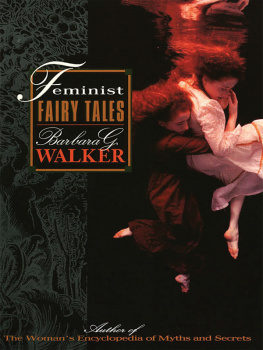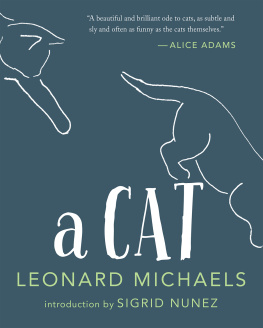Barbara Michaels - The Walker in Shadows
Here you can read online Barbara Michaels - The Walker in Shadows full text of the book (entire story) in english for free. Download pdf and epub, get meaning, cover and reviews about this ebook. genre: Detective and thriller. Description of the work, (preface) as well as reviews are available. Best literature library LitArk.com created for fans of good reading and offers a wide selection of genres:
Romance novel
Science fiction
Adventure
Detective
Science
History
Home and family
Prose
Art
Politics
Computer
Non-fiction
Religion
Business
Children
Humor
Choose a favorite category and find really read worthwhile books. Enjoy immersion in the world of imagination, feel the emotions of the characters or learn something new for yourself, make an fascinating discovery.

- Book:The Walker in Shadows
- Author:
- Genre:
- Rating:5 / 5
- Favourites:Add to favourites
- Your mark:
- 100
- 1
- 2
- 3
- 4
- 5
The Walker in Shadows: summary, description and annotation
We offer to read an annotation, description, summary or preface (depends on what the author of the book "The Walker in Shadows" wrote himself). If you haven't found the necessary information about the book — write in the comments, we will try to find it.
The Walker in Shadows — read online for free the complete book (whole text) full work
Below is the text of the book, divided by pages. System saving the place of the last page read, allows you to conveniently read the book "The Walker in Shadows" online for free, without having to search again every time where you left off. Put a bookmark, and you can go to the page where you finished reading at any time.
Font size:
Interval:
Bookmark:

Barbara Michaels
The Walker in Shadows
Copyright 1979
One
I
The house next door had been empty as long as Pat could remember. Old Hiram, the caretaker, did not really occupy it; he camped in it, buying his food at one or another of the quick-food outlets and sleeping-so rumor reported-on a folding cot in one of the vast, echoing bedrooms. No chest of drawers would have been necessary, since he appeared to own only two shirts-one checked, the other plain blue-and two pairs of pants. Presumably these were replaced periodically, since they never progressed beyond a certain stage of decrepitude. Hiram had been heard mumbling to himself as he walked the streets, on those occasions when he emerged to dine on Big Macs and French fries. The soles of his shoes, inadequately secured by rubber bands, slapped the sidewalk as he proceeded. Sometimes he burst into a loud shrill laugh, as if he had told himself a particularly witty joke.
The neighborhood children called him a witch, ignoring his sex, which was, admittedly, hard to determine at a casual glance, for his long gray hair straggled to his shoulders. It was Pat's son Mark, trained to verbal accuracy by his father, who pointed out that male witches were more properly known as warlocks. The other kids liked the sound of the word and adopted it; thereafter, when old Hiram appeared on the street he was followed by a crowd of imp-sized tormentors, chanting the noun and a variety of selected adjectives. These became richer and riper and more decidedly Anglo-Saxon as the children grew, and their mothers shook their heads and wondered where the little monsters picked up such language.
Hiram's persecutors called him names, but they stayed at a safe distance, and after one or two unpleasant episodes they did not venture onto the weedy, overgrown lawn of the house next door. They claimed Hiram had chased them with a nail-studded club, spitting blue fire.
The adults dismissed the blue fire and were inclined to place the club in the same doubtful category. No child ever showed convincing wounds, so the other parents followed the example of Jerry Robbins, husband of Pat and father of Mark. His reaction to Mark's complaint was a stern lecture on the meaning of private property. The lecture was reinforced by the method immortalized by Dickens' Mr. Squeers-wall, noun; build, verb active. Mark built the wall between the two houses, assisted by his father. It took him three weeks of playtime, and got the point across.
A high iron fence, complete with spikes, surrounded the rest of the forbidden property. Rankly overgrown trees and shrubs formed a further barrier; on summer nights the shrouding honeysuckle scented the entire neighborhood, and poison ivy added its charms to bram-bly roses and other foliage. Normally these barriers would only have been a challenge to the children. It was not the wall, or the fence, or the poison ivy that kept them out; it was old Hiram, and the effect Jerry's lecture had had, not only on his own son, but on the other children.
Jerry had been dead now for over a year.
Pat's mind touched this thought and twisted away. She had survived that year only by refusing to let the knowledge surface any oftener than she could help; by concentrating compulsively on the tasks of each day; and by seeking chores that kept her mind fully occupied and her body exhausted enough to sleep.
It was spring again, and that made it worse. Spring is always cruel, with its false promise of resurrection, and Jerry had enjoyed the season so much-the return of the migratory birds, the emerging green spears of bulbs he had planted the previous fall, the first freezing afternoon on a soggy golf course. Yet as Pat sat by her window looking down on the hard-knotted potential flowers of the lilac bushes by the front door, she was thinking of something other than the treachery of spring. The house next door had been sold. A month earlier old Hiram had vanished into that mysterious limbo from which he had come, and a series of workmen had descended on the old house, supervised by a bustling lady from the local realtor's office. This morning the moving vans had lumbered up the street and stopped before the house, and Pat had decided that her cold was so bad she couldn't possibly go to work.
She blew her nose and dropped the tissue into a wastebasket conveniently at hand by her perch on the deep, padded window seat. Nurses were supposed to be immune to any disease short of bubonic plague; but she was entitled to some sick leave, the office was well staffed that week-and she was curious. She was cultivating that curiosity the way an injured person might encourage the first signs of movement in a paralyzed limb.
It was a dreary day, with low gray clouds and occasional drizzles of rain. A stiff breeze rattled the branches of the trees. If these had been fully leafed her view would have been cut off; even now, the only way she could see what was going on was from the second floor of the house. Her room was on the corner; she could see not only the street but, over the fence, into the neighboring yard. The first van had opened its rear doors and men were lifting out furniture swathed in protective cloths.
Pat wriggled into a more comfortable position, her feet up on the seat, her back supported by cushions. Mark had gone off to his morning classes at the junior college after fussing over her till she was ready to shriek. He prided himself on his culinary skills; the breakfast he had brought her included enough food for one of the husky moving men next door-bacon and eggs, English muffins, fried potatoes, grapefruit, and a big glass of orange juice. He made sure she ate all of it, standing over her with his hands on his lean hips and his dark brows drawn together in a forbidding scowl, until she swallowed the last bite. The fact that he looked so much like his father didn't make it any easier for her to swallow.
Now, thank God, he had gone, and Pat was able to relax with coffee and cigarettes. She had not dared to admit to him that she was curious about what was happening next door, for he took a dim view of gossip and snooping, as he called it. Albert the cat prowled the room hoping Pat had overlooked a scrap of bacon. Mark's dog, Jud, a big black Labrador fondly known as the laziest dog in Maryland, was sprawled on the braided rug before the fireplace.
It was a charming, if slightly bizarre, room. Pat's eyes, accustomed to its eccentricities, passed over without heeding them, but a stranger would have been amused or appalled by some of the details. The large, high-ceilinged chamber was half-paneled, in the Georgian style, but the carving on the wooden chimneypiece was pure Gothic, with fantastic pointed arches supporting the mantel. Equally fantastic was the oriel window on whose wide cushioned seat Pat had settled, with its leaded panes and trefoil arches. The architecture demanded massive furniture, like the heavy four-poster bed; but the hangings and spread were of flowered print whose colors matched the lavender and blue and rose shades of the braided rug where Jud snored in canine comfort. Pat doubted that the dog had any notion of guarding her; Mark had lighted the fire before he left and Jud had simply sought out the warmest place in the house. Jerry always said Jud was an ideal watchdog. He was so clumsy and so affectionate that a burglar would be bound to trip over him and break a leg, giving them plenty of time to telephone the police.
Resolutely Pat turned her eyes from the room she and Jerry had shared to the view out of the window. The moving men had removed the shrouding cloths from some of the objects before they carried them into the house. What she could see was prosaic enough: a bronze standing lamp, sections of a steel bookcase, rolled rugs, their patterns indecipherable. A few of the pieces of furniture were transported still swathed in their wrappings. Pat tried to make out their shapes and failed, catching only a glimpse of curved chair legs that ended in the characteristic Queen Anne ball. Perhaps the newcomers shared Jerry's love of old things, antique furniture, aged houses.
Next pageFont size:
Interval:
Bookmark:
Similar books «The Walker in Shadows»
Look at similar books to The Walker in Shadows. We have selected literature similar in name and meaning in the hope of providing readers with more options to find new, interesting, not yet read works.
Discussion, reviews of the book The Walker in Shadows and just readers' own opinions. Leave your comments, write what you think about the work, its meaning or the main characters. Specify what exactly you liked and what you didn't like, and why you think so.







